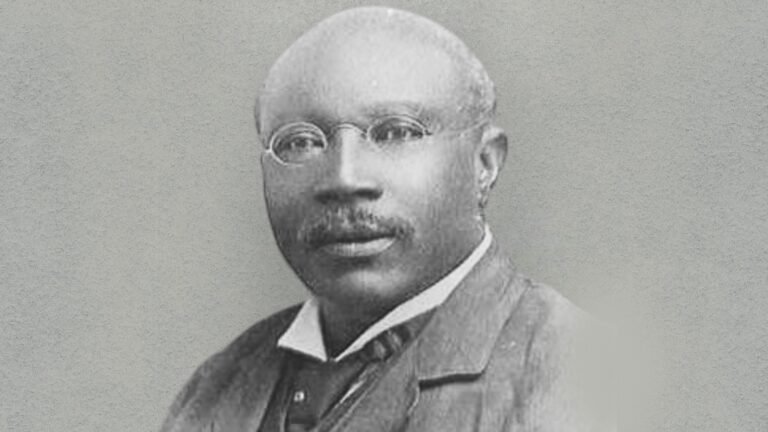Within the lengthy arc of Caribbean historical past, a couple of figures stand out as visionaries who anticipated the actions of a brand new century. Amongst them is Dr. Joseph Robert Love, a Bahamian-born mental, doctor, priest, journalist, and politician who made Jamaica his adopted house. His identify doesn’t carry the worldwide recognition of Marcus Garvey or Norman Manley, however his work within the late nineteenth and early twentieth centuries laid necessary foundations for black political illustration, pan-African thought, and the usage of the press as a software for social change.
From Nassau to New Frontiers
Love was born in Nassau, Bahamas, on October 2, 1839, right into a interval nonetheless haunted by the shadows of slavery. Gifted and bold, he pursued schooling with uncommon dedication, first coaching for the Anglican priesthood and later qualifying as a medical physician in the US. He grew to become the primary black graduate of the College at Buffalo’s medical faculty in 1880, a distinction that spoke to his mind and resilience in an period when systemic racism narrowed the horizons of numerous others.
His early clerical work took him to Florida, New York, and ultimately to Haiti, the place he served as an Anglican rector and later labored within the Haitian civil service. The years in Port-au-Prince had been formative: Love witnessed the complexities of governance in a black republic, one which was each admired and feared by colonial powers. Political conflicts led to his expulsion in 1889, however the expertise sharpened his conviction that black self-determination was not solely potential, however important.
Jamaica and the Energy of the Press
Arriving in Jamaica on the finish of the Eighties, Love rapidly recognised the constraints of the island’s Crown Colony system, the place actual energy remained within the fingers of British authorities and a small white elite. He understood that the battle for black illustration required greater than speeches—it demanded a platform. In 1894 he based The Jamaica Advocate, a newspaper that grew to become his loudspeaker for reform.
Via its pages, Love known as on the black majority to coach themselves, register to vote, and declare their rightful place in public life. He not solely urged participation however actively printed voting pointers round election time and campaigned for candidates who broke the color barrier. Throughout the 1896 elections, he rallied assist for Alexander Dixon, the primary black man to enter the Legislative Council because the 1840s. For a disenfranchised inhabitants, this was greater than politics—it was an invite to energy.
Love was forward of his time in championing gender equality. In an period when girls’s schooling was usually dismissed, he argued that women deserved the identical secondary education as boys, insisting that “a individuals can not rise above the requirements of its womanhood.”

Politics, Service, and Wrestle
Love did greater than write. He stepped instantly into politics, contesting elections himself and ultimately successful a seat on the Legislative Council in 1906, representing St. Andrew. He additionally served as chairman of the parish board, a justice of the peace in Kingston, and a trustee of Wolmer’s Schools. Loves political developments and people of the individuals of African decsnet he advocxated for signalled the rising assertion of black management in Jamaica’s civic life.
But his efforts weren’t with out frustration. Colonial constructions hemmed him in, and the lots he sought to mobilise usually remained exterior the system as a result of poverty and disenfranchisement. Nonetheless, his unwavering name for political participation left a deep impression on younger Jamaicans—together with Marcus Garvey, who enrolled in elocution classes with Love and got here to treat him as a mentor.
This imaginative and prescient positioned Love among the many early champions of Pan-Africanism, constructing on the momentum sparked by Henry Sylvester Williams and the Pan-African Affiliation in 1891. His insistence that black Jamaicans deserved political voice and self-respect foreshadowed the nationalist struggles of the 20 th century and helped encourage Garvey’s world motion, which drew closely on Love’s pioneering use of the press and his name for black enfranchisement. At present, historians regard him as one of many key Pan-African nationalists of the late nineteenth century.

A Legacy Past Borders
By the early 1910s, sickness pressured Love into early retirement. He died in 1914 and was buried at Half-Method Tree, Kingston, removed from the Nassau of his beginning however firmly rooted in Jamaica’s soil. His affect, nevertheless, endured. Via Garvey and others, Love’s imaginative and prescient of black dignity, political participation, and collective self-assertion unfold far past Jamaica’s shores.
Dr. Joseph Robert Love’s life reads like a journey throughout the Black Atlantic: from the Bahamas to the US, from Haiti to Jamaica, transferring by way of pulpits, medical halls, newsrooms, and council chambers. At each stage he confronted the constructions of racial exclusion and sought to carve out house for black company.
Why He Issues At present
In celebrating Love, we recall not solely a person however an period when the seeds of Caribbean nationalism had been first sown. He reminds us that change usually begins with people who refuse to just accept the boundaries imposed upon them. Love was a priest who noticed past the altar, a health care provider who understood that drugs alone couldn’t heal society, and a journalist who gave voice to the unvoiced.
Greater than a century after his dying, Joseph Robert Love stays an neglected however very important determine within the story of Caribbean self-determination—a person who confirmed that the poll field, the newspaper, and the spoken phrase might all be weapons of liberation.

